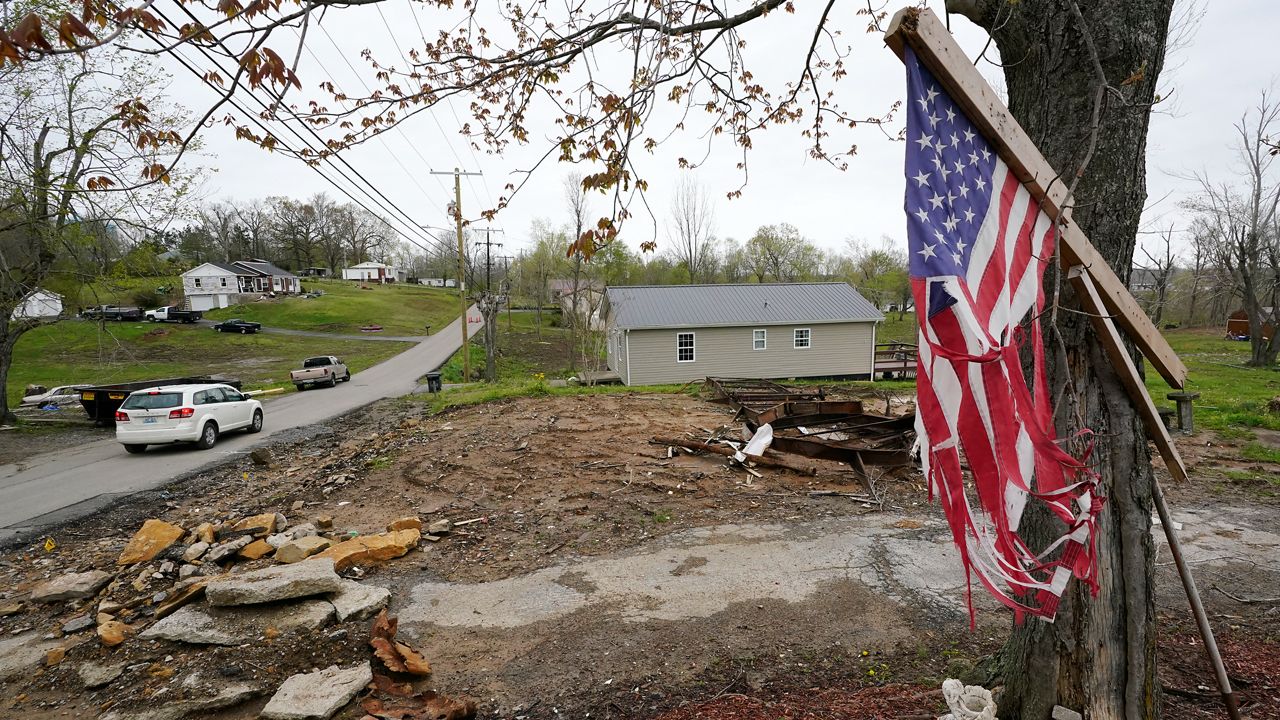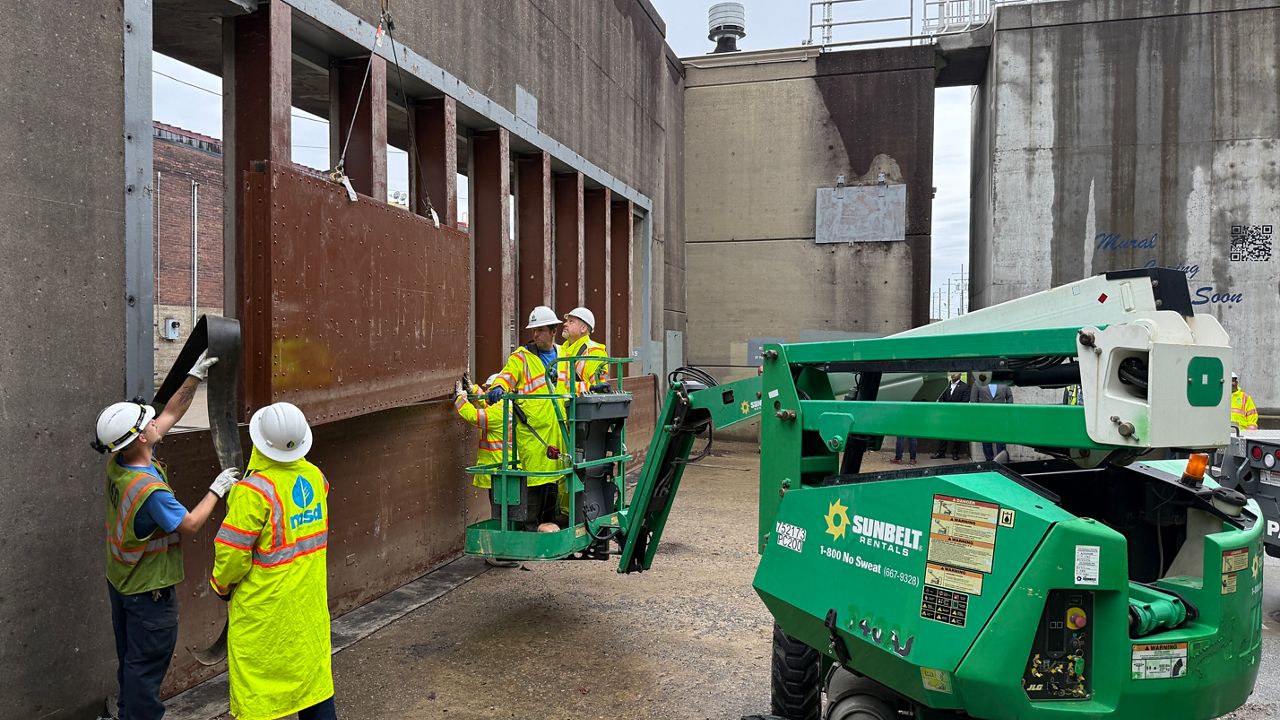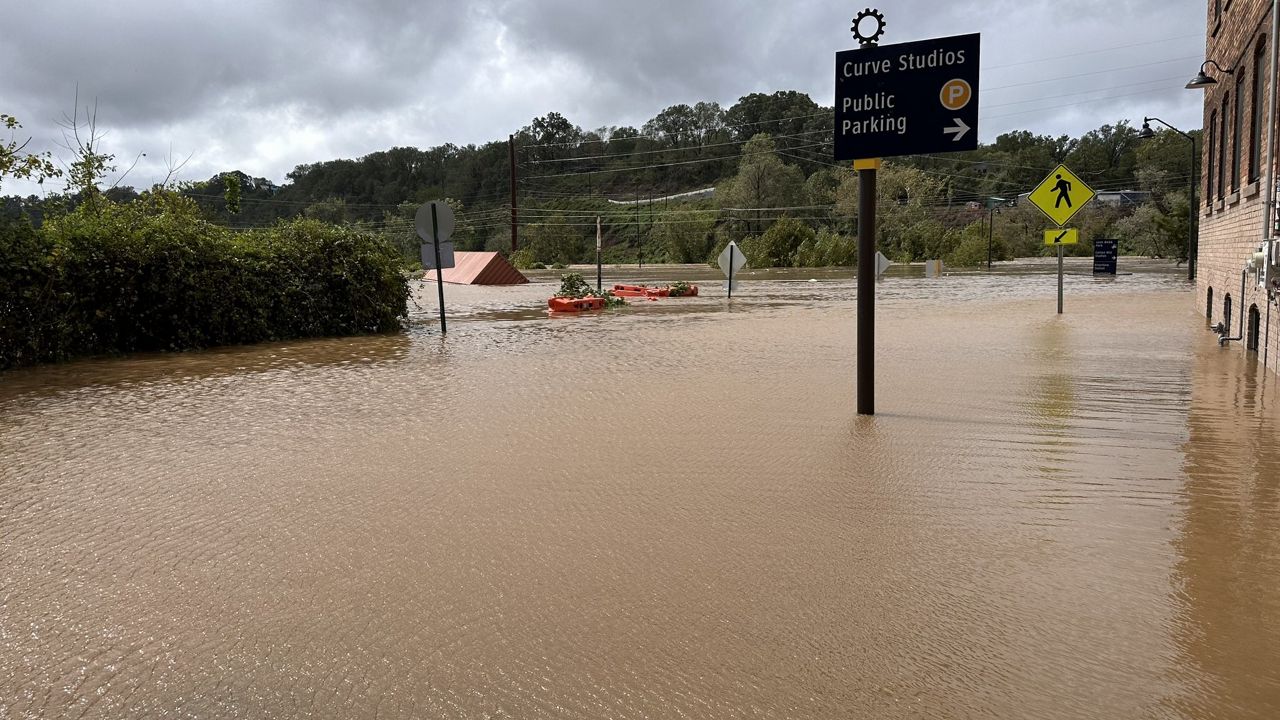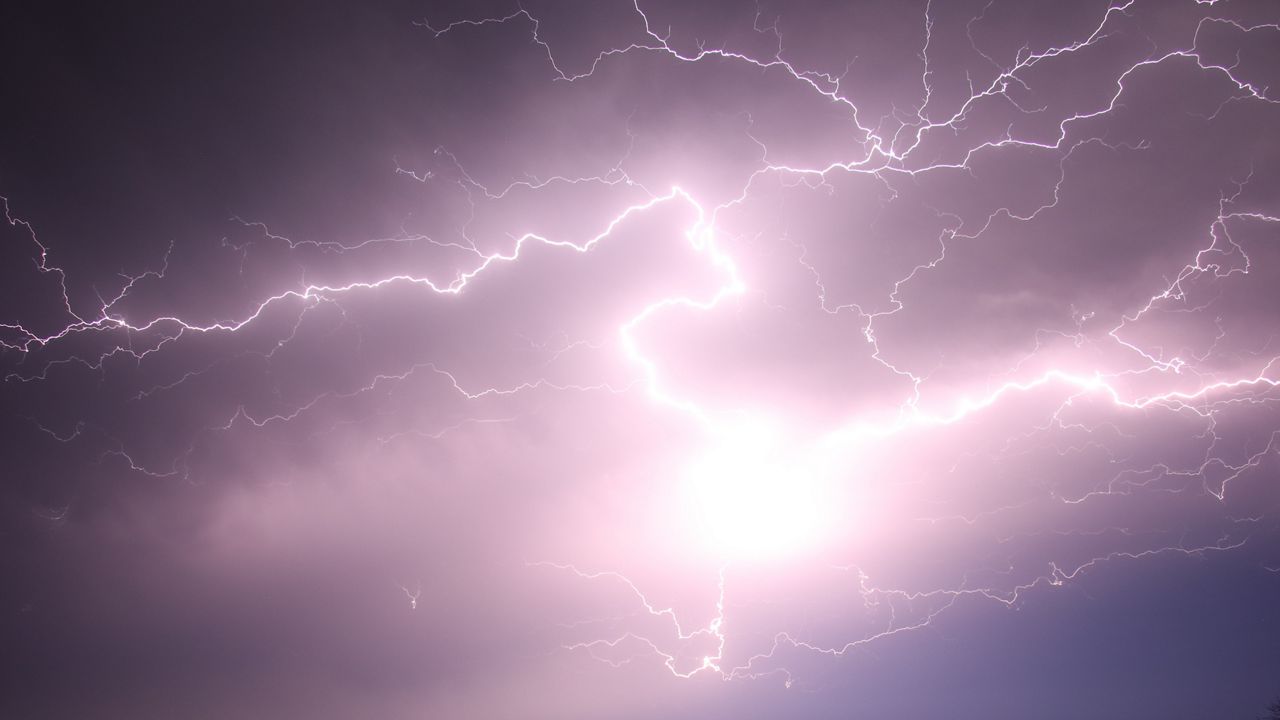MAYFIELD, Ky. (AP) — Sundays at the Bullock home in rural Kentucky were filled with lasting memories: big family dinners, cornhole, basketball and karaoke.
Those gatherings ended the night of Dec. 10, when a massive tornado obliterated their Dawson Springs house, trapping Chris Bullock, 17-year-old son Stevie and miniature poodle Dewey under a crumbled brick wall in the basement. Her husband pulled them from the rubble with minor injuries, but the house where she and her family lived for 26 years was gone.
“There were things we were never able to find," Bullock told The Associated Press recently. “Our neighbor's dryer was in our yard. We found our ketchup but we couldn't find our refrigerator."
Four months after the tornado upended her family's lives, Chris Bullock and hundreds of other Kentuckians are arduously reconstructing their pre-storm existence. Thanks to a vast network of municipal workers, contractors, churches, charities and volunteers, communities like Dawson Springs, Mayfield and Bowling Green are edging toward recovery.
The storm system that spawned the deadly tornado tore through a handful of states. The National Weather Service recorded 41 tornadoes on Dec. 10 and 11, including 16 in Tennessee and eight in Kentucky. Eighty-one people died in Kentucky alone, state officials said. Thousands found shelter with relatives and friends, or in emergency facilities, hotels and state parks.
In Mayfield, a candle factory, a nursing home and government buildings were destroyed. Homes were ripped from foundations and splintered by fierce winds. Crews worked day and night to clear debris and restore power.
Audible evidence of rebuilding in Mayfield has been difficult to miss: the cracking and crashing of excavators breaking apart wood and glass, the beep-beep-beep of heavy machinery reversing, the popping of roofers' nail guns.
In an AP interview, Kentucky Gov. Andy Beshear said removing debris and finding temporary housing were early priorities after the tornado. More recently, attention has turned to keeping residents in Kentucky.
“These are towns that have almost been wiped off the map,” Beshear said. “We will continue to be concerned about getting people back on their feet and concerned about not losing the population of these towns.”
Some have moved to more permanent shelter, including travel trailers, the governor said. In Graves County, tiny homes were approved for displaced residents, and several larger homes are being built in Mayfield, emergency management Director Tracy Warner said.
“We really hold the future of Mayfield and Graves County in our hands,” Warner said. “And that is scary, yet exciting."
Although there's cause for optimism, progress remains slow in places. In Dawson Springs, where Bullock and her family now live in a camper, the 54-year-old registered nurse said she has seen just a few houses being rebuilt, and some friends say they won't stay.
Bullock and her husband had paid off their home but didn’t have insurance. A disaster-response charity is helping them build a new house on their property, and Bullock hopes to see a day when their family gatherings resume.
“Sundays were fun days. ... I just want to have that again,” she said.
Beshear, a Democrat, said millions in housing assistance payments from a state relief fund are being distributed. About $64 million in federal assistance has been approved for storm victims in Kentucky, with some aid targeting temporary housing, the Federal Emergency Management Agency said.
Recovery will take “a couple of years, but it shouldn’t take any longer,” Beshear said. “There are days that it’s a little more frustrating, ... but we are going to get this done.”
After the storm, bottled water, diapers and other supplies poured in from across the country. Heartland Church in Paducah became a collection point as volunteers with trucks and trailers made deliveries. The Rev. Marc Glass and volunteers loaded a church outbuilding and a donated warehouse with everything from paper towels to toys.
Herschel Evans, a driver for the American Trucking Association’s Share the Road program, volunteered to drive a bright blue, 53-foot-long semitrailer full of supplies from Atlanta to Paducah.
“I don’t have a lot of money, but I’ve got skills," Evans said. "I’ve got the ability to move that truck around the country.”
Heartland’s relief efforts have shifted to rebuilding, with donated furniture and beds for those who have found new places to live. But Glass said the church's community spirit goes further than that.
“We don't simply care about your physical needs, but we care about you as a whole person. We care about your soul,” he said.
In Dawson Springs, charity group God’s Pit Crew is rebuilding Chris Bullock’s home free of charge.
The nonprofit, based in Danville, Virginia, uses donated equipment and volunteer workers to rebuild houses after disasters ranging from hurricanes to forest fires, said Chris Chiles, a staff member with the group.
Chiles led a convoy carrying about $1 million worth of heavy machinery, tree removal tools and a shower to Kentucky in January. God’s Pit Crew also brings volunteers who counsel victims.
“There’s more healing that goes on with that than putting a tarp on their roof. They can sit with someone and let them know that somebody cares about them,” Chiles said.
Bullock and her husband thought briefly about leaving Dawson Springs or finding an existing home rather than rebuild on their property, “but we lived in that house for 26 years and we raised five children there.”
“It's just home,” she said. “It just didn't feel right to be anywhere else.”









